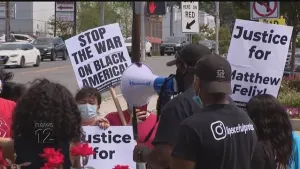More Stories
Language Warning: This is a raw and honest conversation on very important civil and societal issues and the video includes offensive and racist language.
Erika Hill is the founder of Vision Street Research in Baldwin. Her research firm works with community organizations, government agencies, and minority- and women-owned businesses, with a focus on helping Black-owned businesses get government contracts and ensuring that they have a clear marketing strategy. Vision Street Research also works with underprivileged children to help them find careers.
Hill thinks people taking part in protests who are not Black must continue being aware of white privilege after the protests and into the process of policy agenda and reform.
MORE: Reflections on Race: 'I want people to understand that we're human'
MORE: Reflections on Race: 'How do we make long-term change?'
MORE: Reflections on Race: 'When it comes to business, for a Black male everything almost has to be perfect'
MORE: Reflections on Race: 'How do we make long-term change?'
MORE: Reflections on Race: 'When it comes to business, for a Black male everything almost has to be perfect'
"I feel like people should be more aware, and I've been at protests where people, white people have actually had signs that say, 'I know my white privilege and this is how I can help,'" says Hill. "Like I'm standing with my neighbors and with my community members, because this isn't right and I'm going to use my white privilege to advocate for the change, right? So it's not just marching with us, it's also being there when we're trying to develop some sort of policy agenda to correct or reform these things, cause marching is great, but to me then marching becomes a public spectacle, if you're not going to do the real work, which is actually the reform."
Hill encountered racism as a young child living in Queens and bused to school on Long Island. One time, she was called Buckwheat.
"That is actually where I started encountering the racism, was actually on the bus," says Hill. "So when I lived in Queens I was on the bus and it was an older guy and he called me Buckwheat, and I was like, 'What?' just out of nowhere, we were just on a bus and I was like, 'you know what, I'm going to go home and tell my parents.' And I'm like, 'My father's going to come on the bus tomorrow, and I want you to repeat exactly what you said, to him.' So my brother got on the bus and the guy was like, 'Oh I didn't,' and I was like, 'No, I told you what was going to happen and I asked you to apologize,' and he was like, 'I was just joking,' but I was like that term is not a joking term, like you called me Buckwheat."
Another time, a boy spit in her face.
"There was a little, a little Caucasian boy who got into some argument with me and spit in my face, like completely spit straight in my face, right?" says Hill. "That was my reaction…so I spit back, I was a kid, it was like whatever somebody does to you, but I was just so disturbed, like why would you feel comfortable spitting on my face, that was when I started interacting, realizing, people must be taught things different from me because my parents never taught me to like engage with people like that on a bus and then feel comfortable with it. And not feel any sort of recourse, so that was just on a bus."
Hill spoke to News 12 about why the protests should go beyond marching and how the next steps should include policy, political and legal reforms. She also talked about trying to make friends as a little girl and getting called the N-word by a little girl's grandfather.
More from News 12
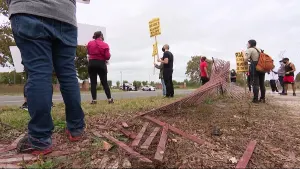
Long Island group gathers at Brentwood State Park to demand justice for Breonna Taylor
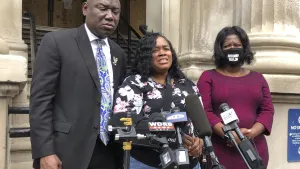
City to pay millions to Breonna Taylor's mom, reform police
2:46
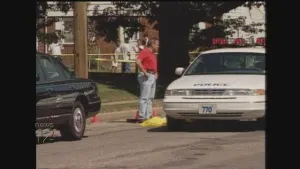
Nassau District Attorney's Office to reinvestigate 1998 Hempstead police-involved shooting
1 day, 11 hours
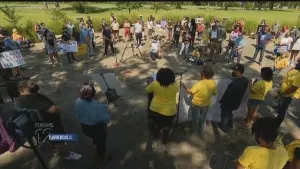
Protesters hold rally outside of Dennison Building in Hauppauge to fight for police accountability
21:27:47
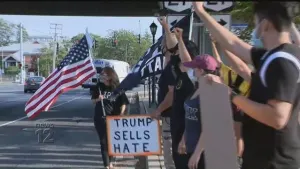
Merrick rally demands justice for Jacob Blake, Black man shot 7 times by Wisconsin police
1 day, 15 hours
